5. The Big Lebowski
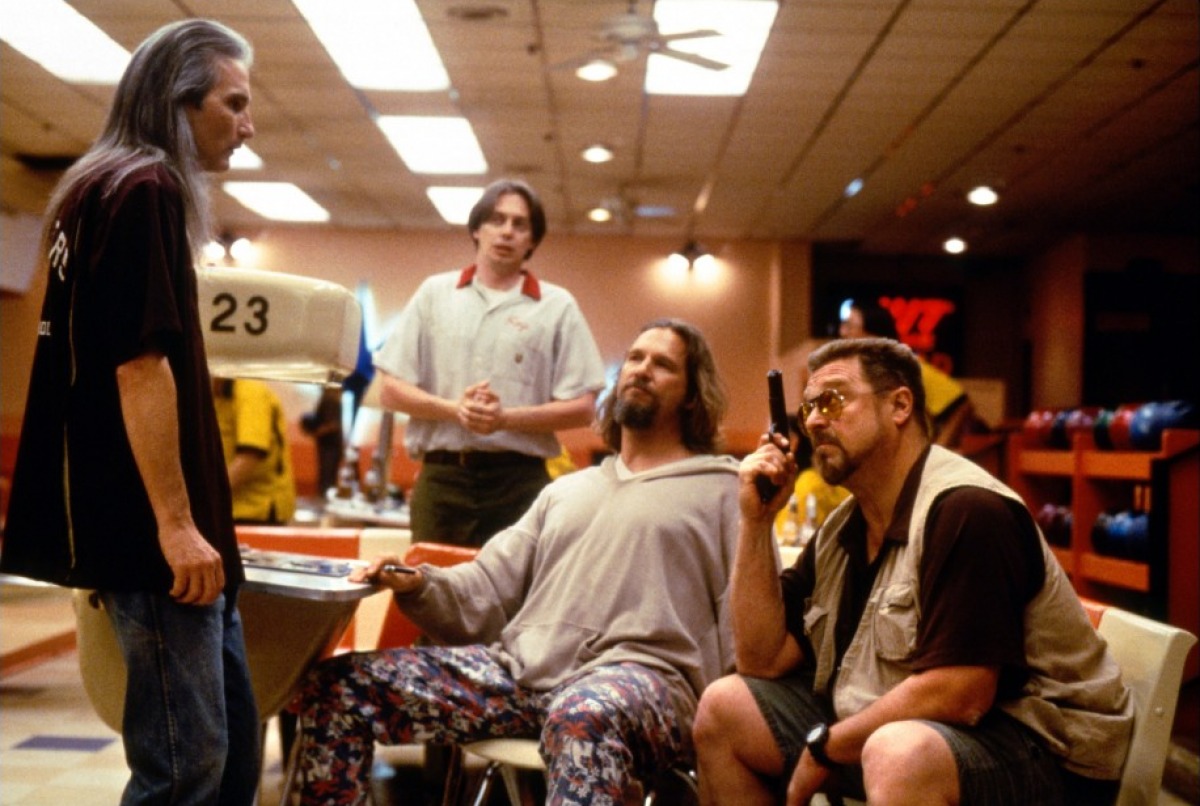
The Coen Brothers have created some of the most memorable characters in film history, and The Dude is in many ways the epitome of what they’ve accomplished. The Dude is the most perfect role of Jeff Bridges’s career, and the Coens’ script is filled with so much absurd dialogue that it’s impossible to not get sucked in- it even gets emotional with the handling of Steve Buscemi’s character Donnie at the end of the film.
On top of the countless quotable lines, this is one of the most visually stunning films of the 90s. Shot by frequent Coens collaborator Roger Deakins, the film utilizes extravagant dream sequences and strange musical numbers to progress it’s story, and Deakins shoots the film in an off kilter manner reflective of its peculiar main characters. The film also has one of the best soundtracks of the 90s, with a particularly iconic use of Bob Dylan’s “The Man in Me” that opens the film.
The Big Lebowski has grown to be the most iconic cult film since The Rocky Horror Picture Show, with a passionate fanbase that embraces The Dude’s philosophies. It’s a film that’s been constantly dissected for hidden meanings, and can be rewatched constantly in order to look for different interpretations.
4. Grosse Pointe Blank
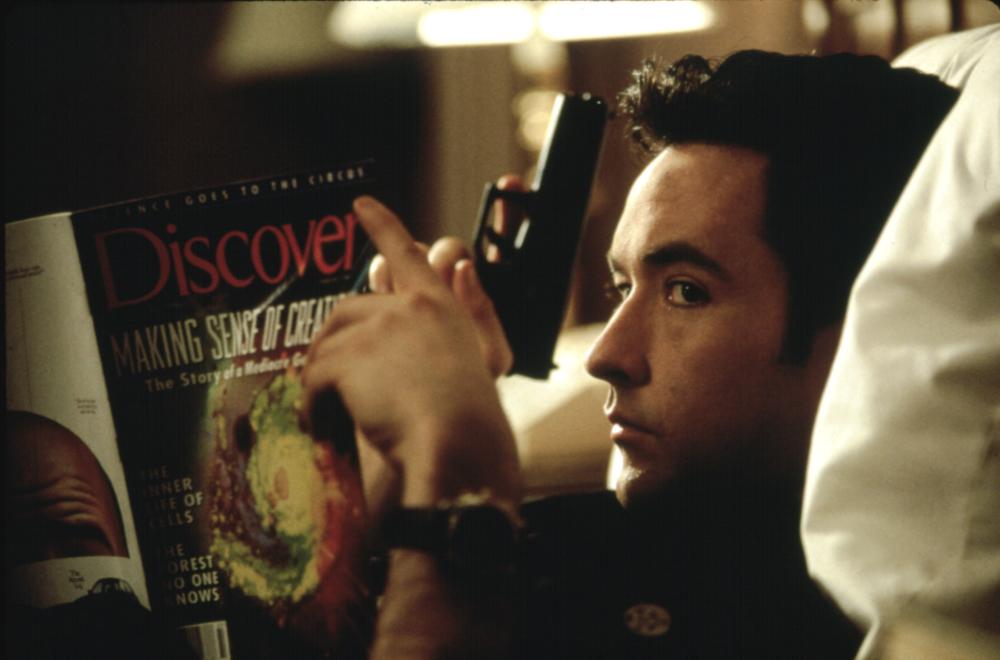
80s nostalgia is now one of the defining elements of today’s filmmaking culture, and Grosse Point Blank is one of the earliest examples of how to do it right. John Cusack stars as a disenfranchised contract killer who returns to his hometown for his high school reunion, and the film plays upon what it’s like to revisit the past and how nostalgia isn’t always a helpful means of coping.
The soundtrack of 80s hits doesn’t feel like a gimmick, as it is integral to Cusack’s character as he reflects on how his life went wrong. This is one of Cusack’s best performances; he is simultaneously funny and tragic, and while the film gets the audience on his side through therapy sessions early on, it also doesn’t shy away from the brutality of what his job entails.
Much of the comedy comes from Cusack’s reactions; he’s outraged and shocked when there’s a new corner store in his hometown, yet completely unfazed when a rival assassin threatens his former high school. Uncompromising in its dark comedy, Grosse Point Blank is a subversive hitman film that has proven to be undervalued among other 90s comedies.
3. Wayne’s World
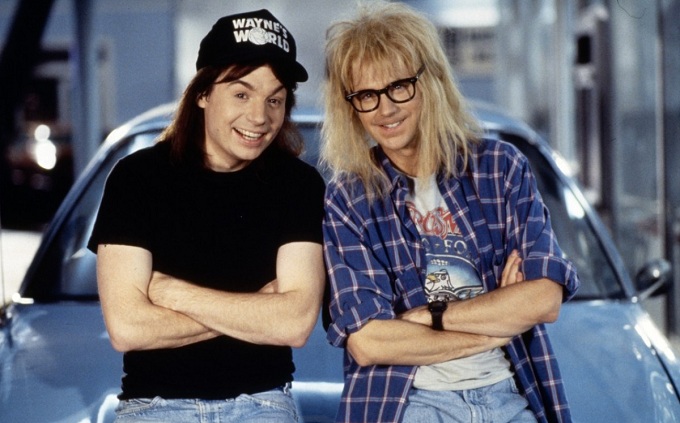
One of the best films based on a Saturday Night Live sketch, Wayne’s World remains the pinnacle of Mike Myers’s career. Satirizing the rise of MTV culture and the struggle for creative control within a corporation, Wayne’s World is Myers at his most uncompromising; from the beginning in which Wayne and friends start bobbing their heads to “Bohemian Rhapsody” after recording their literally underground show, it’s clear that Myers is intending to celebrate a rich history of rock history and build off his SNL persona all at once.
The film is so rewatchable due to the nuances within Myers and costar Dana Carvey’s performances; every facial expression, body tick, and line delivery is delivered with incredible precision and consistency. The level of commitment to mannerisms on the part of these two makes the film’s random asides, including the Robert Patrick cameo and Myers’s “Oscar clip” speech, all the more impactful.
The random cameos and visual gags are what make the film so unique; a scene like the infamous product placement parody sequence is deeply satirical, and allows Wayne and Garth to comment on ideas that exist outside of the central narrative. As an exercise in fourth wall breaking and a space for Myers to bounce off all his crazy ideas, Wayne’s World is a pinnacle of 90s comedy.
2. The Full Monty
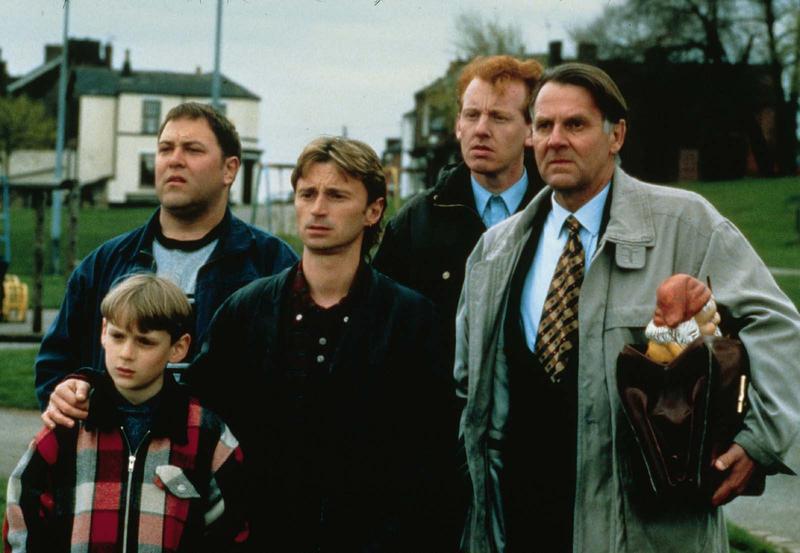
One of the rare mainstream comedy films that received an Academy Award nomination for Best Picture, The Full Monty is a masterpiece in intersecting a legitimate depiction of working class anxieties with hilariously awkward physical comedy. The plot centers on a group of six men, all of whom have recently lost their job, and tracks their attempts to put on a male striptease performance.
None of the main actors are A-listers, which is precisely why the film works so well. These characters are all inexperienced and have no idea what they’re doing, and each character stands out as having different motivations, with Robert Carlyle’s character Gary having to provide for his son without being an embarrassment. Tom Wilkinson also has a great role as Gerald, a former supervisor who has to adjust to not having authority.
Clearly, The Full Monty resonated with audiences, as it became the highest grossing British film at the time of its release. The many uproarious musical moments, including the gang dancing to “Hot Stuff” while in an employment line and their final performance of “You Can Leave Your Hat On,” still hold up today. As a perfect mix of empathy and raunchiness, The Full Monty is a definite classic that ranks high among the most rewatchable comedies.
1. Office Space
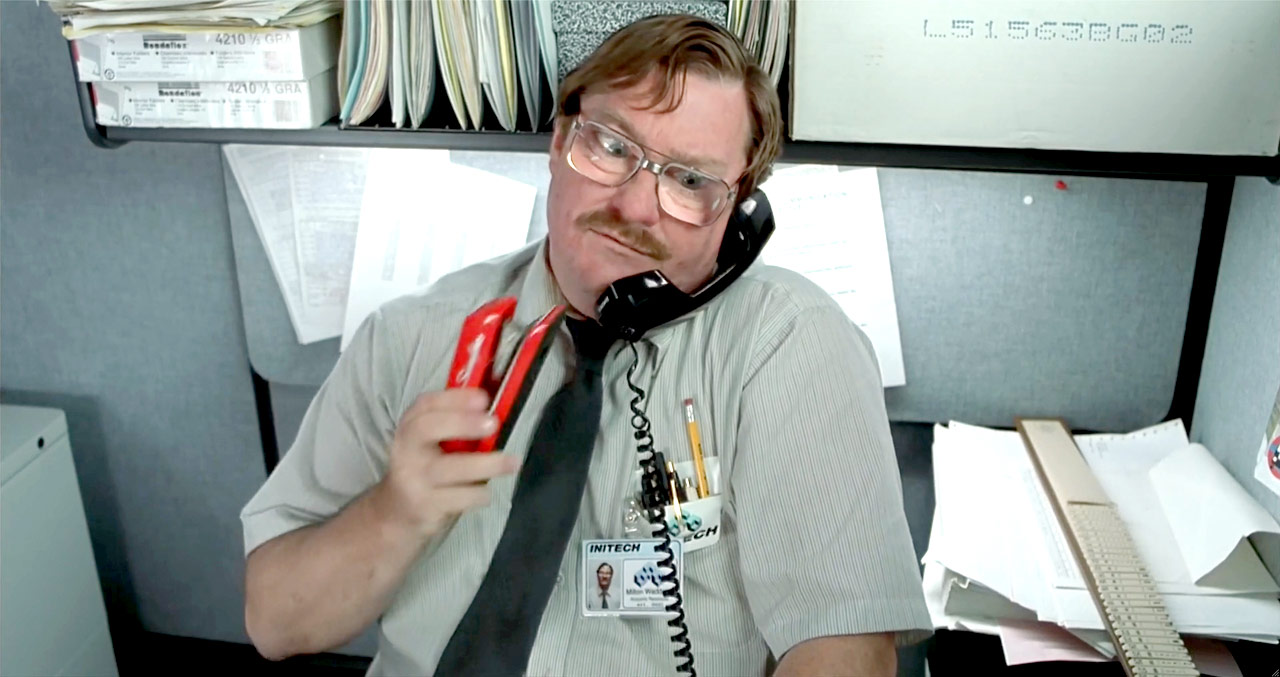
In 1999, Mike Judge adapted his own cartoon series into the ultimate characterization of working a dead end job with infuriating policies, annoying coworkers, and uncompassionate management. Judge went out of his way to make the fictional company Initech as generic as possible, reflecting how the everyday cubicle life can induce madness.
Ron Livingston stars as Peter Gibbons, a programmer who hates his job and despises the fact that he’s forced to work on the weekends. Peter’s rebellion against the system is the ultimate fantasy wish fulfillment, skewering the ease in which it takes to climb the corporate ladder. Peter starts off as a put upon everyman who’s granted confidence through a hypnotism gone awry, and suddenly finds himself to be better suited than ever for office management when he doesn’t care about anything.
Peter’s dismantling of Initech’s office culture is the main reason why Office Space remains so rewatchable, and a lot of it comes across due to Livingston’s performance. While he never went on to be a huge star, Livingston is able to transition between hapless and laid back as Peter gets the chance to get revenge on his oppressive employer.
While many of the technological references are dated, the out of date depiction of financial disbursement makes the film feel comfortably retro, and a product of its time. However, the commentary on having a dead end job still holds up, and solidifies Office Space as a rewatchable and cathartic experience.